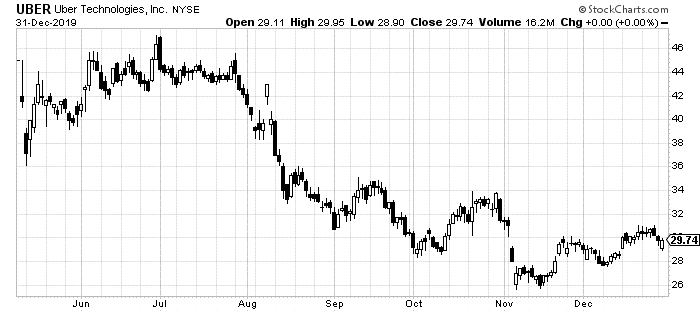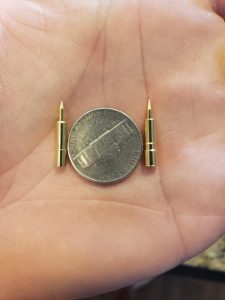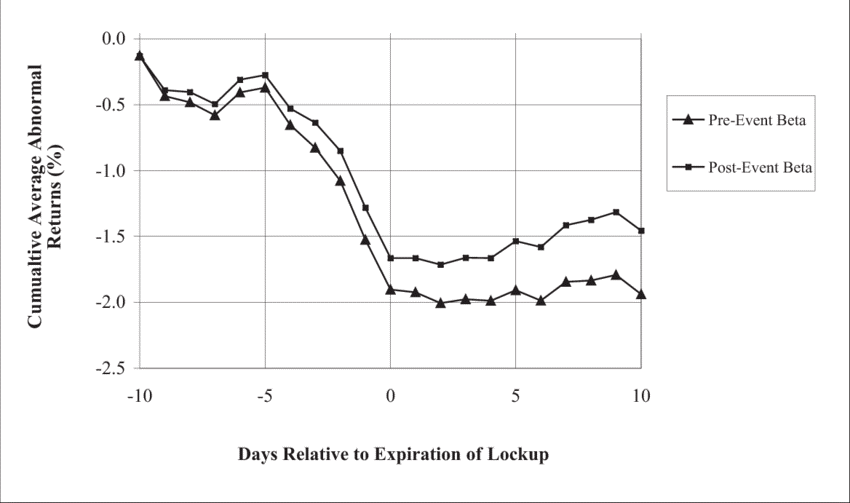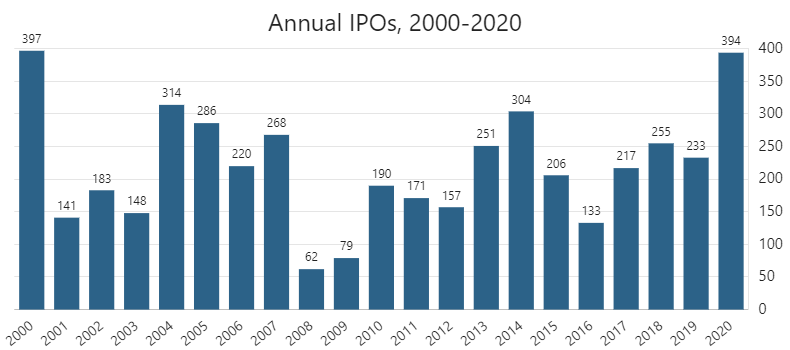You’re going to hear a phrase a lot over the next two months: “lockup expiration.”
When a company IPOs, it generally enters an agreement to withhold a large portion of its previously held shares from the market for a certain amount of time, generally 180 days.
This is so early private equity and insiders can’t go out and start cashing out the minute those shares go public.
Now, there are a lot of misconceptions about what this actually does for a stock when that lockup period expires.
And in a year that saw an amazing 394 IPOs, 78% more than last year, this is a subject that is already starting to pop up on every financial news site in the world.
So, to dispel misconceptions or at least give you the full picture, I’m going to break down what actually happens and what it means for this plethora of 2020 IPOs.
Lockups are first and foremost different in almost every IPO. Some lock out large portions of their early investors’ or insiders’ shares. Others stipulate tiered expirations.
No matter what the specific lockup looks like, the general idea is that when millions of shares are thrust on public markets, it causes a lot of selling pressure.
As you can imagine, the temptation for early owners to finally cash out is strong, especially if those shares jumped post IPO.
In some cases, that does happen.
One significant example happened last year, when Uber Technologies Inc. (NYSE: UBER) came off its lockup period.

As you can see, shares dipped hard in early November when its lockup period ended.
But that was a special case. It had an unusually large number of shares locked up, especially for such a high-profile IPO.
It was also facing new company-specific challenges like California’s Assembly Bill 5 making all Uber and Lyft drivers company employees. Voters earlier this month passed Proposition 22, which exempted these companies. But that’s a story for another day.
That AB 5 was signed into law just a few months before Uber’s lockup ended. Making even those early investors ready to throw in their cards when they could.

Grab a piece of paper and pen to write this down…
Because you’re about to see the name and ticker symbol of the ONLY 5G STOCK every investor should own.
You can get the name and ticker of this company right here, no strings attached. But you better act fast…
Because the Federal Communications Commission, the government agency in charge of 5G, just scheduled a major announcement that would send shares soaring once announced.
Don't miss out. Click Here to Get #1 5G play for 2020 before the next market close.
In most lockups, that’s just not the case.
There have been studies dating back decades on this lockup period phenomenon. One admittedly older study from Managerial Finance found that lockups do affect stocks. But they certainly don’t do the kind of damage pundits like to prognosticate.

In fact, the limited damage is done prior to the lockup expiration due to speculators getting out first. The insiders themselves don’t have much of an impact, even when they can start selling shares.
That’s backed up by recent activity.
IG recently looked at 15 lockups that expired last month. Like the above study, each saw slight dips just days before expiration. But they quickly bounced back to prior-expiration levels within three to five days.
As noted, there have been 394 IPOs so far this year. More are on their way before we close out 2020. You have to go back to the dot-com bubble to find more.

The early ones have already seen their lockup periods expire. But the biggest ones still await their lockup fate.
This includes the likes of Warner Music Group Corp. (NASDAQ: WMG) on Nov. 30, Vroom Inc. (NASDAQ: VRM) on Dec. 7 and Lemonade Inc. (NYSE: LMND) on Dec. 29.
Another one looming and is already creating far too much headline fodder is Palantir Technologies Inc. (NYSE: PLTR). Though, I’ve already seen some confusion regarding this one.
Palantir’s lockup ends three days after its Q4 numbers are announced (in February), not three days after the quarter ends (in January).
Regardless, with so much attention being paid to these lockups, the financial media is missing the point.
IPOs do see some selling leading up to lockup expirations. But they often recover once everyone realizes there’s no selling frenzy.
Instead, when looking at your own portfolio, consider first how the underlying companies are actually doing. If you hold an Uber dealing with actual business problems, you should sell regardless of lockup expirations.
But if you hold companies you expect to continue outperforming, no lockup expiration will crash your portfolio.